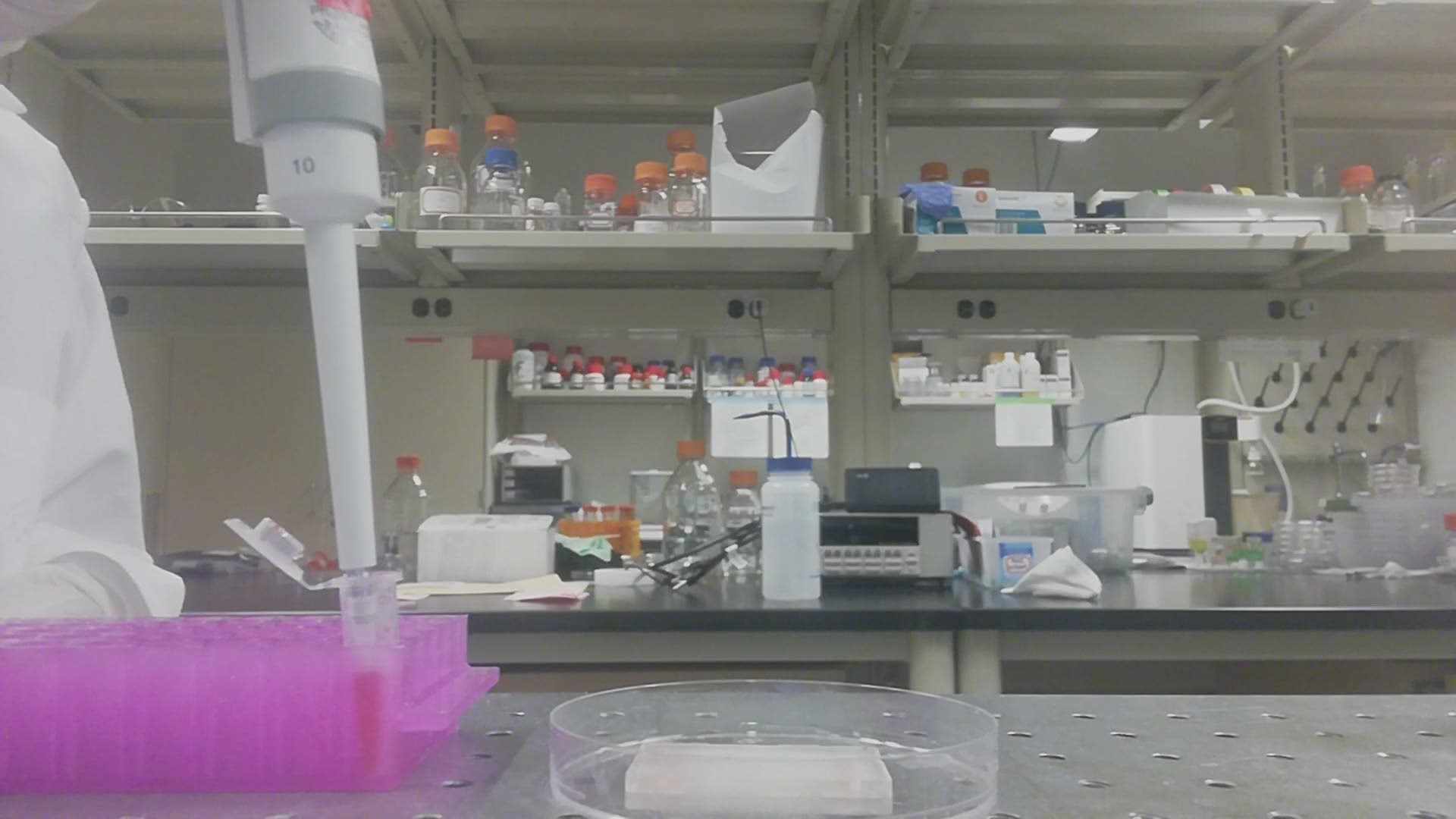AMES, Iowa — Scientists at Iowa State University are developing a COVID-19 test that could be used from the comfort of your home.
The paper-strip urine test is similar to an at-home pregnancy test, according to Robbyn Anand. assistant professor of Chemistry and leader of the project Robbyn Anand.
It's a little more complicated than a pregnancy test, Anand said. This test is designed to detect a coronavirus protein in a urine sample, she said. In order to do so, it has to be 10 to 1,000 times more sensitive than a pregnancy test.
"So, the main difference between this and a pregnancy test is the amount of voltage that's required," Anand explained. "So the test may be something that will have to be plugged in or connected to a larger battery, like a 9-volt battery for example."
"It would have to be stationary on a counter top, like a bathroom counter, for 20 minutes for the test to run," Anand concluded.
Anand said this tech "...is a little like a dam. As fluid flows through the paper strip, the electric field backs up charged molecules - including proteins - so the test line on the paper is exposed to a higher concentration of them for a longer time. Both help with the sensitivity of the test."
This COVID-19 project is built on previous work that uses electric fields to "help detect an inflammatory protein for an autoimmune disease called Sjögren's syndrome," according to a press release.
A $55,000 grant from the Research Corporation for Science Advancement is funding the project. This grant is just one of seven being awarded to support physical scientists launching COVID-19 projects and working to detect and mitigate epidemics.
The research group will also explore a second type of test for the novel coronavirus, Anand said.
This test would involved a 3-D printed card that the lab has already developed to detect DNA products from reverse transcriptase polymerase chain reaction tests, which are the same nasal-swab tests that have been used to detect COVID-19.
Anand said she's hopeful that her lab can use electric fields to develop more "sensitive" COVID-19 tests.
"In both cases, I feel like we can have technologies that work in our lab," she said. "But how do we turn it into a commercial product? We'll need additional engineering capacity for that."

